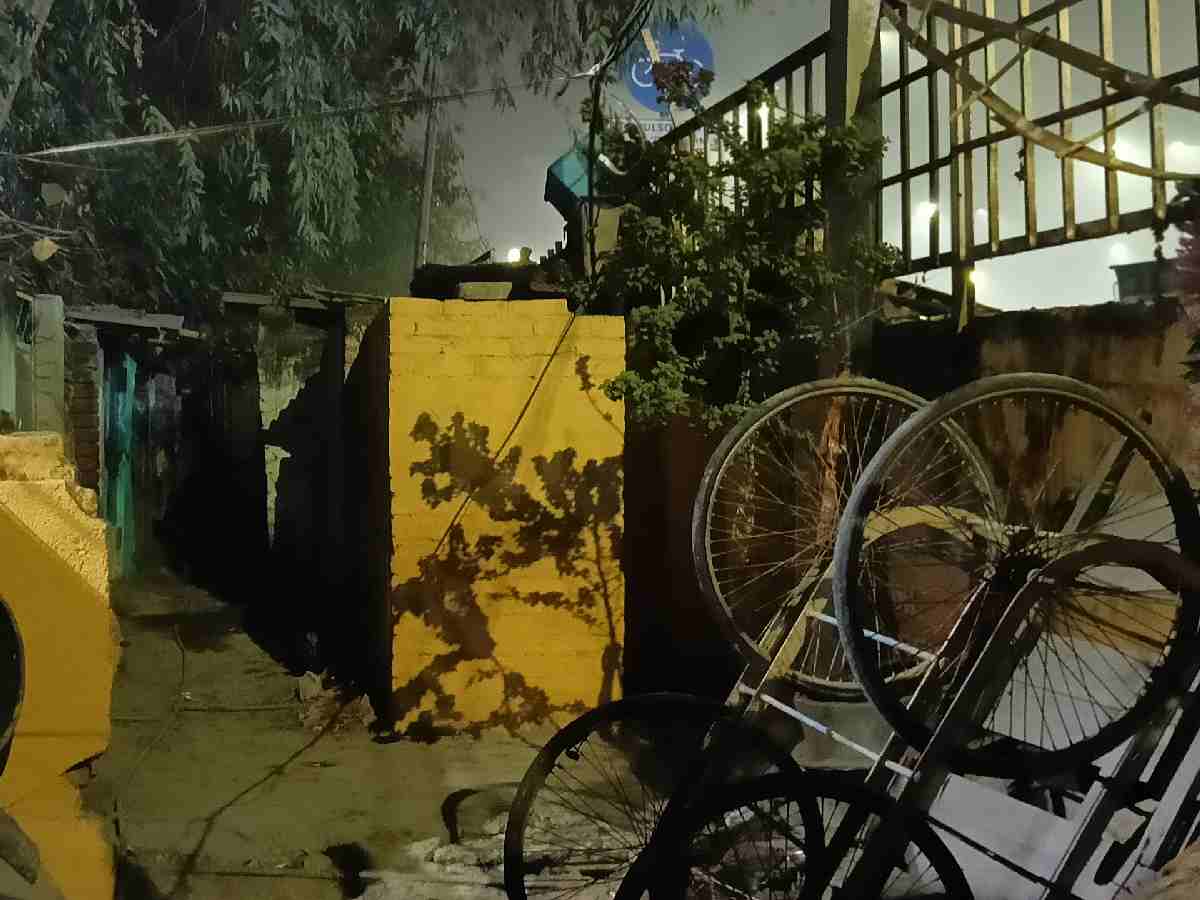
Bathrooms at several shelters in the city have no water supply, say residents
Spanning several hectares near Patparganj village, the Nehru Camp slum cluster has become a high-stakes battleground for political parties in the national capital. Housing approximately 600 families and thousands of voters, this area exemplifies decades of neglect by successive governments, leaving residents doubtful whether this election season will bring tangible change.
The overlooked electorate
As Delhi gears up for the 2025 elections, the plight of its marginalised communities continues to be ignored. The national capital is home to numerous slum clusters and unauthorised colonies that lack essential amenities enjoyed by ‘regularised’ neighbourhoods. Despite their poor living conditions, these areas represent a significant portion of Delhi’s electorate, making them a focal point of political campaigns.
Most slum residents are migrants from nearby and distant states, yet their living conditions and struggles are strikingly similar. A pervasive fear of demolitions looms over these communities, especially given that Delhi accounted for over half of all demolitions conducted across India in 2023. The brunt of these actions fell on slum clusters, wiping out homes and livelihoods without adequate rehabilitation.
Official neglect and empty assurances
According to the Delhi Urban Shelter Improvement Board (DUSIB), there are 675 recognised Jhuggi Jhopri (JJ) clusters across the city. However, unofficial estimates suggest thousands more remain unrecognised, leaving their residents excluded from government welfare schemes and essential services.
Electricity and water are among the most pressing issues in these clusters. Most households receive electricity sporadically, insufficient to meet their daily needs. Water supply is equally erratic, often limited to a few hours in the morning. Despite years of political promises, these problems persist, leaving residents disillusioned.
Political campaigns ramp up
Since September, political parties have intensified their outreach efforts. The Bharatiya Janata Party (BJP) launched its Jhuggi Jhopri Jan Akrosh campaign to highlight the failures of the incumbent Aam Aadmi Party (AAP) government. As part of this initiative, BJP leaders, including Delhi’s seven MPs, spent nights in various slums to connect with residents and strengthen their support among the lower middle class.
The campaign has reportedly reached 1,194 slum clusters across Delhi. Vishnu Mittal, state general secretary and campaign coordinator, emphasised the goal of understanding slum dwellers’ concerns firsthand. “Our aim is to listen and address their problems, which have been ignored for far too long,” he said.
Yet, many residents remain sceptical. “Politicians come here every election season, make tall promises, and disappear. Nothing changes for us,” said Ashok Pradhan, a resident of Nehru Camp.
Pradhan elaborated on the dire state of water supply in his area. “We receive water through Delhi Jal Board (DJB) tankers, but it only lasts two hours in the morning, from six to eight. Earlier, we had water 24 hours a day, but it has become erratic over the past year,” he said.
In an effort to improve living conditions, Pradhan spearheaded the construction of six public toilets in Nehru Camp, funding the project himself after years of unanswered appeals to the government. “The government ignored our requests for assistance, so we took matters into our own hands. But even now, there’s no water supply in the toilets, forcing residents to carry their own water in bottles or mugs,” he explained.
The electricity dilemma
Electricity remains a contentious issue in slum clusters. Mohammed Ali, a resident of Sanjay Shakha Camp in Trilokpuri, described the restrictions imposed on power usage. “We’re not allowed to use electricity on the second or third floors. Only the ground floor is officially connected, which makes it difficult for those of us living upstairs. When we try to extend the connection ourselves, we’re accused of stealing electricity,” he said.
Residents often feel let down by political leaders who promise solutions but fail to deliver. “Every time politicians visit, they assure us they’ll fix these problems, but nothing changes. It’s the same cycle, election after election,” Ali lamented.
Misplaced priorities
In some slums, residents have witnessed construction projects that address peripheral issues while ignoring their most urgent needs. In New Priyanka Camp near Sarita Vihar, a paved street was built to prevent monsoon flooding, but residents like Rani Devi say it has created new problems.
“Elderly people struggle to step over the raised platforms outside our homes. It’s an unnecessary inconvenience,” she said.
A resident of Nehru Camp, speaking on condition of anonymity, suggested such projects are diversionary tactics. “Instead of solving our real problems—like water and electricity—they pour money into things we don’t need. These constructions might help during the monsoon, but they’re useless for the rest of the year,” the resident said.
The worsening water crisis
The water situation in slum clusters has deteriorated further in recent months. Residents report that DJB pipelines often emit sludge due to leaks from nearby drains, contaminating the water supply. Despite repeated complaints, no action has been taken to address the issue.
Also Read: Delhi elections: The plight of Delhi’s SC-reserved constituencies
“We’re forced to drink and cook with water that isn’t fit for use. It’s a health hazard, but nobody cares,” said another resident.
A vicious cycle
As the 2025 elections draw closer, the plight of Delhi’s slum dwellers remains unchanged. Successive governments have made promises, but few have translated into meaningful action. With political parties now intensifying their campaigns, slum residents find themselves once again at the centre of election rhetoric—but far from the solutions they desperately need.
Delhi hosted what organisers describe as the world’s first player auction in golf, launching ‘72…
An elderly woman recalls how her six-year-old granddaughter lay bleeding after a speeding car hit…
Municipal Corporation of Delhi plans a unified policy enabling RWAs to adopt and maintain parks…
A 17-year-old boy allegedly died by suicide after jumping before a moving train at Uttam…
Delhi High Court grants bail to 26-year-old Thar driver accused of mowing down two in…
Two Rohini men arrested for fatally stabbing one person and injuring another during a robbery…